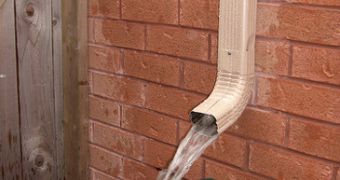It doesn't take an expert to realize that rainwater is most often than not wasted, and that finding solutions to this problem can both help lower house-hold bills and put less strain on our rivers and oceans.
Thus, whomever wants to invest in rainwater-management systems should first and foremost know that things aren't as complicated as one might think, and that all that needs to be done is to follow a few simple rules and regulations concerning collecting, storing and using this often neglected type of resource.
Now, the first thing to do is to decide on which manner of collecting and storing rainwater you wish to settle for. Butts connected to roofs by means of pipes are an ideal choice, as they can also be equipped with filters that help clean up the water.
Seeing how rainwater makes its way down gutters and the like before reaching these butts, it is highly recommended that no efforts are spared when it comes to removing any debris it might contain.
Underground tanks can also be used to store rain water, but odds are that you will need to acquire a permit from the city hall before you start digging in your own backyard to install them, as there is a risk that your environmentally-friendly endeavor will affect local sewerage systems.
Uses for rainwater range from washing your car or your windows to making sure you have a blooming garden even in the midst of the harshest of droughts, when all of your neighbors probably find themselves faced with the hose pipe ban.
As well as this, with some modifications made to your indoor plumbing, you can also use rainwater for flushing.
If you do things properly, you can end up paying 50% less on your water-bills. It is quite likely that your local water company won't be delighted by this turn of events, but chances are that your monthly budget will be overjoyed.
As greenerideal.com emphasizes, the most important thing to bear in minds is that rainwater is by no means drinkable, no matter how refreshing and appealing it may appear at first sight. Thus, make sure you only use it for things such as cleaning and gardening.

 14 DAY TRIAL //
14 DAY TRIAL //